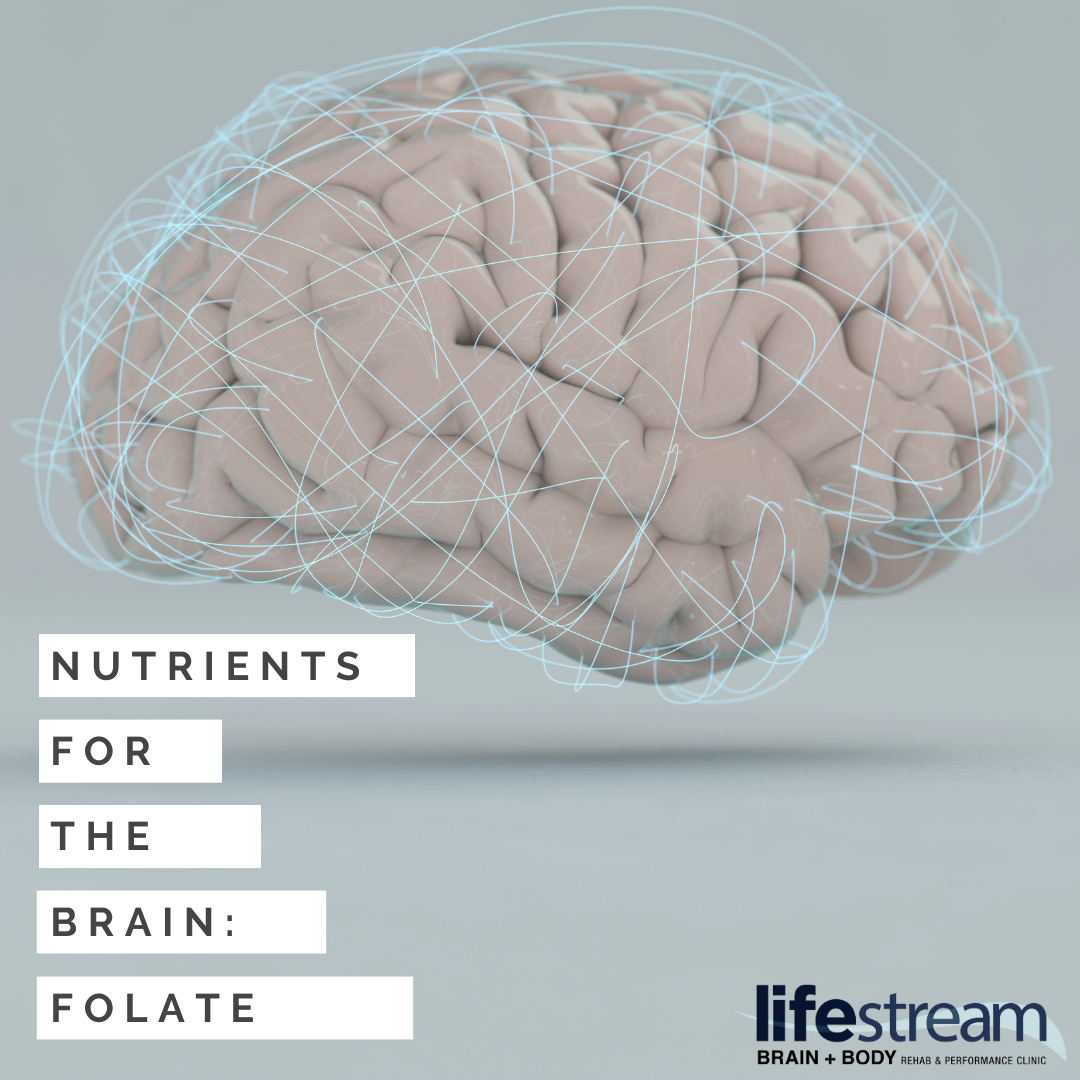Nutrients for the Brain: Folate

Welcome to the next installment of our series on brain healthy nutrients! This week we are going to talk about folate.
There are various B vitamins, but we are going to focus on folate (or folic acid which is the form found in fortified foods like cereal) which is vitamin B9. It is a water-soluble vitamin which means that it is difficult to develop folate toxicity from overconsumption. What role does folate play in the body? Folate, along with the other B vitamins, help enzyme reactions happen in your body that help to make DNA as well as red blood cells. It is also needed for your cells to divide properly and is essential for optimal brain function.
Folate is particularly known as an important nutrient for pregnant mamas to prevent neural tube defects in their children. While it is important in the growth and development of the brain and nervous system, it is also important later in life. Studies have shown correlation between sufficient folate and cognitive and academic performance in children.
There is also a lot of evidence linking deficient folate status, other B vitamins, and elevated concentrations of a compound called homocysteine (not normally a good sign) with cognitive decline in older adults.
Unfortunately, the folates naturally found in foods are often bound to proteins and because of their form, are not absorbed as well as the form typically found in supplements (folic acid). Consequently, only 44-80% of the folates found naturally in foods are absorbed into the blood (the rest are excreted); however the folic acid found in supplements are absorbed at nearly 100%. Although naturally occurring folates are not absorbed in the body as well as the form in supplements, it is still important to eat foods with folate.
Sources of folate in the diet:
– Beef liver: This is a nutrient powerhouse! 3 oz offers 54% of your daily requirement
– Vegetables: dark leafy greens (spinach), asparagus, Brussel sprouts
– Fruits: avocados and orange juice
– Beans and peas: black-eyed peas, green peas, kidney beans
– Folate supplements
Sources:
https://www.ncbi.nlm.nih.gov/pmc/articles/PMC2805706/#R85
https://ods.od.nih.gov/factsheets/Folate-Consumer/
https://www.mayoclinic.org/drugs-supplements-folate/art-20364625
https://www.cambridge.org/core/journals/proceedings-of-the-nutrition-society/article/emerging-roles-for-folate-and-related-bvitamins-in-brain-health-across-the-lifecycle/4D024A2EEEE4126D725B74118DBEC2D3
https://onlinelibrary.wiley.com/doi/10.1111/nbu.12611
https://www.ncbi.nlm.nih.gov/pmc/articles/PMC4867132/
https://lpi.oregonstate.edu/mic/vitamins/folate
https://ods.od.nih.gov/factsheets/Folate-HealthProfessional/
